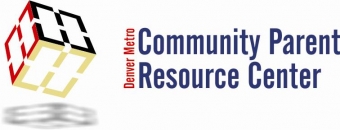- Education Topics
- Achievement Gap
- Alternative Education
- American Education Awards
- Assessment & Evaluation
- Education during COVID-19
- Education Economics
- Education Environment
- Education in the United States during COVID-19
- Education Issues
- Education Policy
- Education Psychology
- Education Scandals and Controversies
- Education Reform
- Education Theory
- Education Worldwide
- Educational Leadership
- Educational Philosophy
- Educational Research
- Educational Technology
- Federal Education Legislation
- Higher Education Worldwide
- Homeless Education
- Homeschooling in the United States
- Migrant Education
- Neglected/Deliquent Students
- Pedagogy
- Sociology of Education
- Special Needs
- National Directories
- After School Programs
- Alternative Schools
- The Arts
- At-Risk Students
- Camps
- Camp Services
- Colleges & Universities
- Counties
- Driving Schools
- Educational Businesses
- Financial Aid
- Higher Education
- International Programs
- Jewish Community Centers
- K-12 Schools
- Language Studies
- Libraries
- Organizations
- Preschools
- Professional Development
- Prom Services
- School Assemblies
- School Districts
- School Field Trips
- School Health
- School Supplies
- School Travel
- School Vendors
- Schools Worldwide
- Special Education
- Special Needs
- Study Abroad
- Teaching Abroad
- Volunteer Programs
- Youth Sports
- For Schools
- Academic Standards
- Assembly Programs
- Blue Ribbon Schools Program
- Educational Accreditation
- Educational Television Channels
- Education in the United States
- History of Education in the United States
- Reading Education in the U.S.
- School Grades
- School Meal Programs
- School Types
- School Uniforms
- Special Education in the United States
- Systems of Formal Education
- U.S. Education Legislation
- For Teachers
- Academic Dishonesty
- Childcare State Licensing Requirements
- Classroom Management
- Education Subjects
- Educational Practices
- Interdisciplinary Teaching
- Job and Interview Tips
- Lesson Plans | Grades
- Professional Development
- State Curriculum Standards
- Substitute Teaching
- Teacher Salary
- Teacher Training Programs
- Teaching Methods
- Training and Certification
- For Students
- Academic Competitions
- Admissions Testing
- At-Risk Students
- Career Planning
- College Admissions
- Drivers License
- Educational Programs
- Educational Television
- High School Dropouts
- Higher Education
- School Health
- Senior Proms
- Sex Education
- Standardized Testing
- Student Financial Aid
- Student Television Stations
- Summer Learning Loss
Denver Metro Community Parent Resource Center

Basic Information
Address: 14501 E. Alameda Avenue, Suite 205
(2nd Floor of Colorado State Bank and Trust Bldg)
Aurora, CO 80012
Phone Number: 303-365-2772/303-365-2776 Spanish speaking
Fax Number: 303-365-2778
Director: Yvette Plummer
Action Shots
* There are currently no photos associated with this listing.
Additional Information
Causes Served: Families with children with disabilities age birth to 26 years old
Population Served: Families with children with disabilities age birth to 26 years old
Ages for Volunteer: over 18
Hours of Service: open
Minimum Hours Required: open
Days of Service: Monday - Friday
Mission Statement:
The mission of the Denver Metro CPRC is to inform and empower low-income, culturally and linguistically diverse families as advocates for their children with disabilities, age birth-26, to achieve meaningful participation in their schools and communities.
Philosophy/Belief Statement:
Our desire for our families is:
• That more parents be actively involved in decision making for their children’s education.
• That families learn their rights and their child’s rights under IDEA 2004 and will be able to navigate the special education system in a manner that is consistent with their cultural beliefs.
• For students to have access to the general curriculum and appropriate behavior supports.
• Increase parents of color as participants in leadership roles in the Denver Metro area.
• Under-served families have access to information and support in their native language.
Program History:
Over the past three years the Denver Metro Community Parent Resource Center (CPRC) has created a project of significance to address active parent participation in implementing the Individuals with Disabilities Education Act (IDEA) in the Denver-Metro area with the collaboration of numerous Colorado policy-making, advisory, and advocacy groups, as well as local grass-root organizations that support family empowerment to improve educational services for students with disabilities. All of our services are free to families and professionals.
Additional Information:
Normal
0
false
false
false
MicrosoftInternetExplorer4
/* Style Definitions */ table.MsoNormalTable {mso-style-name:"Table Normal"; mso-tstyle-rowband-size:0; mso-tstyle-colband-size:0; mso-style-noshow:yes; mso-style-parent:""; mso-padding-alt:0in 5.4pt 0in 5.4pt; mso-para-margin:0in; mso-para-margin-bottom:.0001pt; mso-pagination:widow-orphan; font-size:10.0pt; font-family:"Times New Roman"; mso-ansi-language:#0400; mso-fareast-language:#0400; mso-bidi-language:#0400;} Our services include:
- Providing information and skills to parents and professionals through our workshops on different topics (http://www.denvermetrocprc.org/display_page.asp?site_id=7&page_id=196&m=1)
- Mentoring parents to become independent advocates for their children and in turn teach self-advocacy to their children.
- Outreach to under-served groups to identify families that have children with disabilities that need information, support and services.
- Cadre Volunteers available to attend Individual Education Plans (IEPs) with other parents who need the support.
- Parent advising by phone.
Workshops Topics and Descriptions
www.denvermetrocprc.org/display_page.asp

